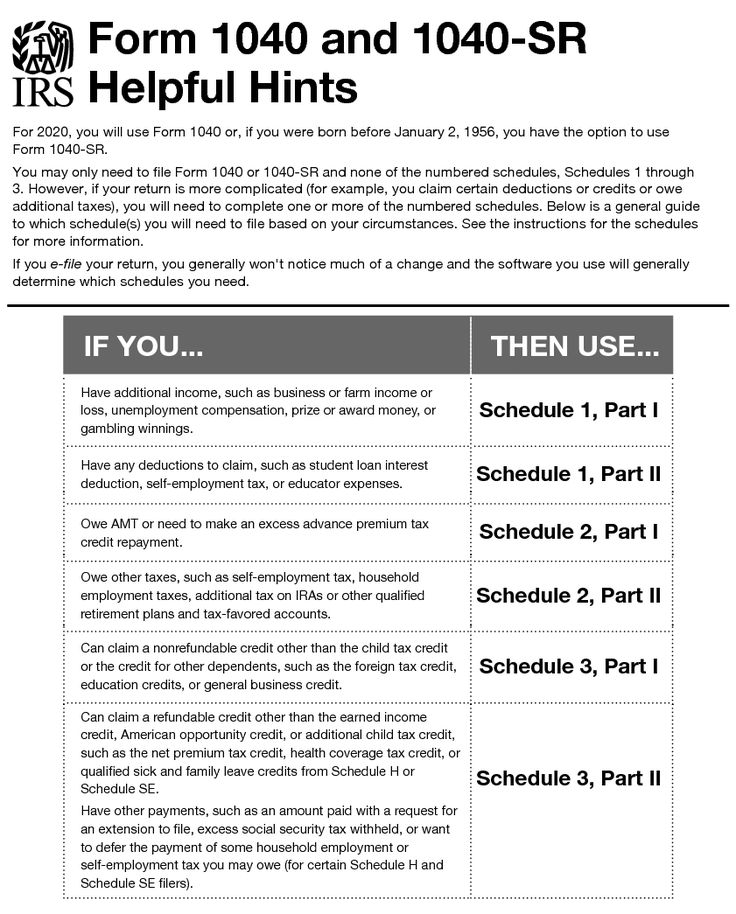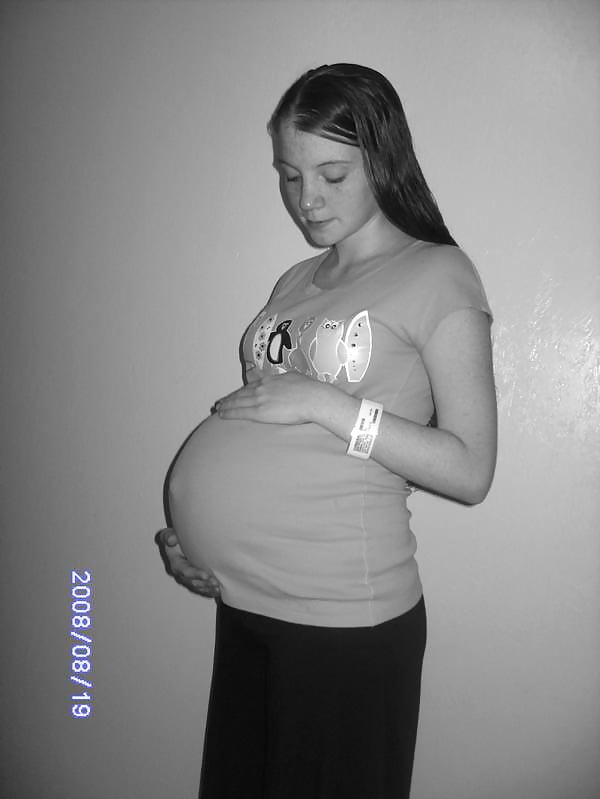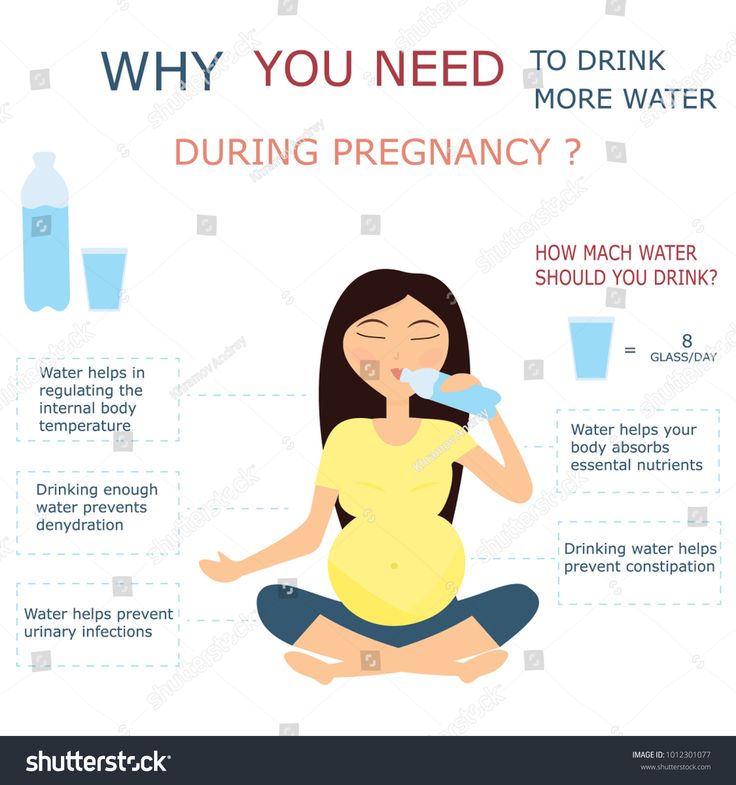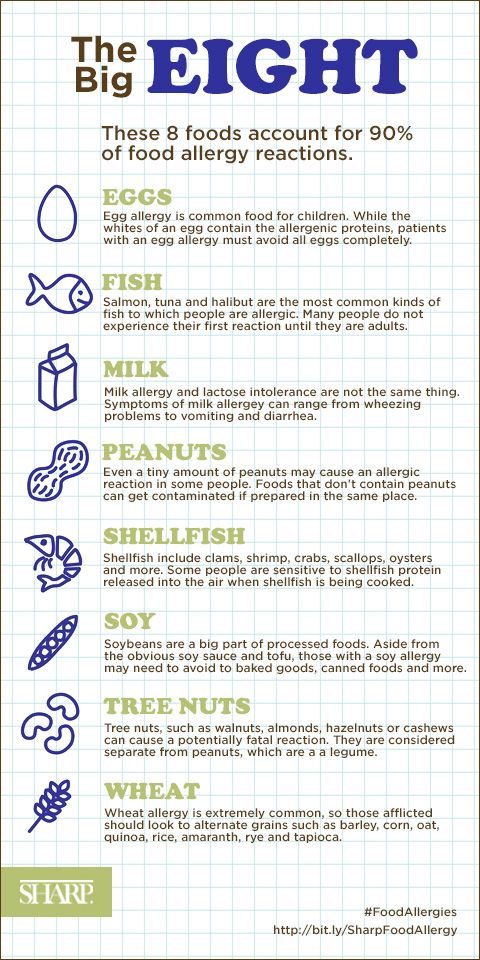Yellow throw up while pregnant
Throwing Up Yellow and Pregnant: Causes and Treatments
If you’re pregnant, you may be paying way more attention to everyday aches, pains, discomforts, and bodily fluids than usual.
Since many common pregnancy symptoms fall into two categories — annoying but totally harmless and warning signs of a serious problem — you may find yourself focusing intensely on each and every burp, fart, cramp, twinge, and craving, wondering whether you should ignore it or call your doctor.
And while you were expecting to do some puking during pregnancy, you might not have expected it to be yellow — and now you don’t know what to do about it.
That’s OK! We do know, and we’re happy to tell you.
Yup, it certainly can be!
Yellow vomit is just stomach acid. When you don’t have any food in your stomach but you’re still throwing up, it’s inevitable that you’ll start vomiting the only thing left in there: bile.
Bile is acid produced by your stomach to help break down your food.
If you’re throwing up first thing in the morning when you haven’t eaten anything yet — or if you’re persistently throwing up — it’s normal to eventually see yellow bile instead of whatever your last meal was.
The most likely reason you’re throwing up yellow liquid during pregnancy is the same reason you’re throwing up anything at all during pregnancy: hormones.
Particularly in the first trimester, pregnancy hormones like estrogen and progesterone are skyrocketing.
You’re also developing higher levels of hCG, or human chorionic gonadotropin, as your body accepts the fact that it’s now home to a growing human being (and needs to prepare itself, stat).
So, the puking is normal, but again, because you might be doing it more often than usual and way more often first thing in the morning with an empty stomach, it’s likely to be yellow at least once in a while.
Depending on whether you’ve had any liquids recently and how vigorously you’re throwing up, the consistency of your yellow vomit might vary.
It could be super liquidy and clear, foamy, or even thick and mucousy (yup, nasty). This all falls into the “normal” category.
In addition to your sunshine-colored puke, you may also have the usual morning sickness symptoms:
- a queasy, carsick feeling
- stomach cramps
- loss of appetite
- dehydration
- a bitter or metallic taste in your mouth
Morning sickness usually fires up around the 6th or 7th week of pregnancy, peaks around 9 to 12 weeks, and then tapers off by 12 to 20 weeks. So, if you’re having a lot of yellow vomiting, you can assume it will probably follow that trajectory.
But here’s where we share the bad news: Some stay sick for longer, and some truly unfortunate souls get stuck with morning sickness until they give birth (WHY?!).
It’s not how things usually go, thankfully, so don’t stress about this too much. We just have to put it out there as a possibility.
It helps to settle your stomach after you’ve vomited, so you can maybe catch a few hours of relief.
Sipping nausea-friendly drinks, like peppermint tea and ginger ale, can work wonders. So can nibbling on carbs: Think crackers, toast, dry cereal, pretzels, or plain bagels.
It might be hard to drink water on a queasy stomach, but try to avoid getting dehydrated. If you can’t handle all that liquid going down into your stomach, suck on ice cubes or popsicles, or take small sips from a straw.
Basically, just don’t brush your teeth, as tempting as it is.
Yes, your mouth tastes gross and your breath smells bad. But when stomach acid comes into contact with your teeth (especially if you’re vomiting frequently), it can soften your tooth enamel.
Brushing your teeth when your enamel is softened can actually strip away some enamel, which isn’t great for your teeth in the long run.
If you can’t stand the taste in your mouth, try swishing some water around and then spitting it out again to give your teeth and tongue a good rinse without all the damage.
You can’t necessarily prevent morning sickness — it’s triggered by hormones, which are totally out of your control. (Get used to that, BTW.)
(Get used to that, BTW.)
But you can often find a couple of tricks that stave off the worst of it. And you might be able to avoid vomiting of the yellow sort, in particular.
Try the following:
- Eat a small snack right before going to bed or before getting out of bed in the morning. Having something in your stomach might prevent some morning episodes of vomiting and, even if it doesn’t, you won’t be throwing up stomach bile, at least. Protein, like almonds, and carbs are a good choice.
- Don’t skip meals. Consider having something in your stomach at all times, however small. Lots of folks notice their nausea is worse when they haven’t eaten for 2 or 3 hours, so you may want to adopt a constantly grazing approach to food for the time being.
- Avoid excessively spicy foods, which can worsen nausea.
- Get plenty of rest. Some find their morning sickness is worse when they’re tired or running on empty.
- Talk with your doctor about managing your nausea.
 There may be medications you can use during the worst weeks of morning sickness to avoid throwing up from morning ’til night.
There may be medications you can use during the worst weeks of morning sickness to avoid throwing up from morning ’til night.
While few get away with zero vomiting during pregnancy, there’s definitely a point when you surpass a “normal” amount of puking and veer into medical condition territory.
This is called hyperemesis gravidarum (HG). You can’t just ignore it; left untreated, HG can lead to:
- dehydration
- malnutrition
- weight loss
- fainting
- mental confusion
Typical red flags suggesting you might have HG and not run-of-the-mill morning sickness include:
- vomiting constantly
- not being able to keep down any food
- fainting or dizzy spells
- weight loss of more than 5 percent of your body weight
If you think you might have HG, call your doctor. Also call your doctor if you have any of the following symptoms:
- dark urine or inability to pee
- severe headache
- fever
- shortness of breath
- dizziness or confusion
- severe pain or cramping in your abdomen
- bloody vomit
- muscular weakness
- vision changes
- vaginal bleeding
- sudden swelling of extremities
- abdominal pain
This could mean your morning sickness isn’t under control, or that you have an infection or other serious medical condition.
Not all nausea is necessarily due to pregnancy. Other things like appendicitis, gallbladder inflammation, and gallstones can still occur in pregnancy.
Throwing up yellow might be alarming, but it isn’t a cause for concern in the majority of cases. It means you’re throwing up on an empty stomach — the yellow stuff is your stomach acid.
You might be able to prevent it by having some food in your stomach first thing in the morning, before you get up, but you won’t be able to stop morning sickness entirely if you’re someone who gets it in the first place.
Thankfully, for most people, morning sickness wraps up by the end of the first trimester (if you’ve been throwing up yellow, that should go away then, too!).
Why Am I Throwing Up Yellow Vomit During Pregnancy?
Pregnancy can be a complicated time for any mother and it frequently comes with a wide variety of symptoms that could cause concern. One such symptom is seeing yellow vomit during pregnancy, but is it really something to be scared of?
The truth of the matter is that yellow vomit during pregnancy is quite common, especially if you get frequent bouts of morning sickness. Chances are the yellow liquid is the stomach acid from an empty gut.
Chances are the yellow liquid is the stomach acid from an empty gut.
Other than causing a slight, but nasty, burn to your esophagus, there’s nothing really to worry about. However, if it does keep happening, you may want to take some precautions to try prevent it as it can be super uncomfortable and moms-to-be have enough on their plate as it is.
Aside from that, it could develop into a chronic thing if not stopped. I’m pretty sure that this is something every pregnant woman would rather avoid.
So, how can you deal with this common pregnancy symptom of throwing up yellow bile and what does it mean to throw up yellow liquid while pregnant? Read on to find out.
What Causes Yellow Vomit During Pregnancy?
Usually, when we vomit, we throw up our most recent meal.
However, with an empty stomach, the only thing left to throw up is stomach acid or yellow bile which results in yellow vomit.
You might be wondering why this happens during pregnancy. The answer is pretty simple: pregnancy hormones.
The answer is pretty simple: pregnancy hormones.
Hormones are the most notorious troublemakers for a pregnant woman, especially during the first trimester where their levels are all over the place with progesterone and estrogen being the main culprits.
There’s also the matter of rising hCG (human chorionic gonadotropin) levels. This hormone is produced by the placenta when it recognizes a pregnancy, helping it prepare to grow a new human life.
This hormonal cocktail can wreak havoc on your entire system, not just your gut. But for most women, it’s exactly the gut that’s most affected and I don’t just mean the weird food cravings, but all sorts of other uncomfortable things as well.
All these rapid hormonal changes are what make early pregnancy such a tumultuous experience, but don’t worry yourself too much, it’s all part of the process of becoming a mother.
What Are The Symptoms Of This Type Of Vomiting?
Dealing with yellow vomit or morning sickness can be a nuisance in general, especially if you’re out and about.
Here are some of the most common symptoms that might accompany vomiting so you can know what to expect:
• abdominal pain and cramping
• heartburn
• a metallic or bitter taste in your mouth from the acid
• the feeling of motion sickness
• severe nausea
• lack of appetite
• dehydration
Depending on your stomach contents and the severity of your condition, the stomach contents can change consistency to be either mucusy or even foamy. Note that if the vomit has a mucus-like consistency, this might be a sign of a more severe case.
Signs Of Severe Morning Sickness
While vomiting is one of the classic early signs of pregnancy, do be aware that it’s also not healthy for it to occur often during the day because that can be an early sign of a more serious condition.
There’s a fine line between one or two occurrences a day and throwing up frequently which puts you at higher risk of more severe symptoms such as:
• severe dehydration
• weight loss
• loss of electrolytes
• severe malnutrition
• constipation
• frequent bouts of confusion and fainting
The medical term for this more serious condition is hyperemesis gravidarum (HG) and it can lead to even worse complications if left unchecked.
If you spot any of these symptoms, please make sure to get medical advice from your doctor or any other qualified and trained healthcare professional.
They’ll be able to provide you with the most accurate health information and proper medical procedures and treatment options to get everything under control so you can continue with your pregnancy normally.
The easiest way to know if you need to go to a doctor is if you notice some of the more serious side effects of throwing up such as severe weight loss, the inability to hold any food or liquid down for extended periods, throwing up almost immediately after eating, or frequent fainting.
What Other Symptoms Should You Be On The Lookout For?
Aside from yellow vomit during pregnancy and the other symptoms listed above, there are a few additional ones you should also be on the lookout for.
They could indicate a more serious condition that requires immediate medical attention.
Some of the most common ones are:
• extremely dark urine (dehydration)
• peeing less or not peeing at all
• traces of blood in your vomit
• strong and frequent headaches
• general weakness
• feeling short of breath or having a hard time breathing in general
• extreme pain in your gallbladder
• heavy abdominal cramps and pain
• blurry vision
• swelling and/or bloating of your extremities
All of these could be potential signs that something is wrong and that you need medical attention.
Although these may just be signs of an infection, things such as gallbladder pain or pain in your appendix may require surgery before you give birth otherwise they could cause serious complications that’ll put both you and your baby in distress.
When Does Vomiting Yellow During Pregnancy Begin?
According to most cases, yellow vomit typically occurs in the earlier weeks of pregnancy (6th or 7th).
The duration tends to vary greatly but it usually lasts up to three months.
This might sound grueling, however, it reaches its peak at the end of the first month after which it becomes a rarer and rarer occurrence until it completely fades away.
That said, for some women, this condition can last for the full 9 months of pregnancy simply because of hormonal imbalances.
Luckily, these cases of severe vomiting are pretty rare and chances are you’re unlikely to have to deal with it for that long.
And, if you do end up dealing with this long-term, you can still rest assured that you’ll have a healthy pregnancy.
Easing The Symptoms Of Yellow Vomit During Pregnancy
As mentioned earlier, most cases of this are relatively mild and, aside from the discomfort and bouts of nausea, they won’t cause you much issue.
While full prevention is impossible, there are a few things that may help you deal with the vomiting or reflux and help ease the symptoms:
• Make sure to always get plenty of rest. Pregnancy can be exhausting and the exertion may be the cause of your frequent throw-ups.
You have to realize that you’re in a more delicate state now and you may not be able to follow your pre-pregnancy lifestyle.
Make more time in your schedule to rest up and let your body’s batteries recharge. You may see an improvement in your condition.
• Even when faced with a loss of appetite as one of the symptoms, make sure to eat. Your body needs nutrition and if it’s always expelling food, chances are you’re likely not getting any.
Do note that you can’t just eat anything, even if your food cravings suggest otherwise.
One particular food type that you should avoid if you’re struggling with nausea is spicy foods. Try sticking to more dry foods that can help soak up liquid or slow down the digestion process so you can keep things down.
Some of the best foods for this are carb-heavy things such as saltine crackers, pretzels, and toast. You can also grab foods that fit into the B.R.A.T. (Bananas, Rice, Applesauce, and Toast) diet as they’re proven to be helpful when dealing with vomiting and diarrhea.
• If you want to reduce the intensity of the post-vomit acid reflux, try grabbing a late-night snack to have something digesting in your stomach overnight. This’ll help simmer down the symptoms of yellow vomit during pregnancy.
It may lessen the amount thrown up or even prevent it altogether on some days, though it depends from person to person.
Do stick with something light such as a simple pretzel, a few slices of toast, or some light protein like almonds so that you don’t potentially ruin your sleep quality.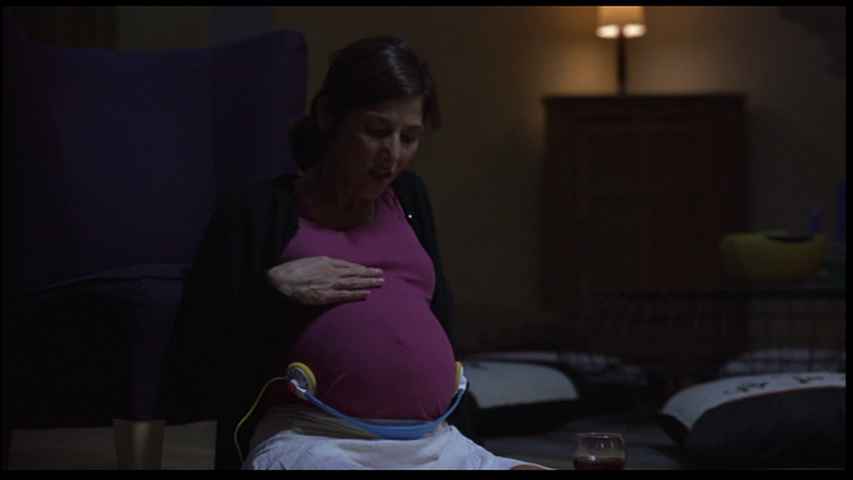
You can also try snacking really early in the morning, but the former method has proven to be a bit more effective.
• Ginger ale or various forms of tea can be lifesavers in these situations. Once again, what works for regular bouts of vomiting or diarrhea works in this case too.
RELATED: Benefits Of Drinking Lemon And Ginger Tea During Pregnancy
Tea is a good alternative to water if regular water seems to agitate your tummy a bit too much. If you have a particularly hard time keeping things down, stick to a sip or two every few minutes or so.
• Add some vitamin B6 to your diet if nausea is your main concern. It’s commonly found in most proteins like peanuts, oats, chicken, and bananas.
• In cases of severe electrolyte loss, you may need to get some intravenous assistance. Contact your doctor, explain your symptoms, and ask if you could be hooked up to an IV to make up all of the lost electrolytes so your body can absorb liquids normally again.
• Talk to your doctor regardless. If you’re having a hard time, ask them if there’s over-the-counter medication that you might be able to take to help lessen the symptoms so you can function properly.
While these are all things that you can do to help, there’s one thing that you should absolutely avoid when you’re dealing with throwing up yellow bile, and that’s brushing your teeth immediately after.
The aftertaste of throwing up may be bad, but the stomach acid attacks the tooth enamel covering your teeth, making it easy to scrape off with a toothbrush.
Instead, use some water to rinse out your mouth and brush your teeth a little later.
In Conclusion
While yellow vomit is nothing more than stomach bile, it can be really uncomfortable as it goes up your esophagus and burns the lining.
The metallic and bitter aftertaste is no picnic either.
But, it’s all just a regular part of pregnancy and therefore nothing to worry about. However, it should be monitored in case it becomes slightly “abnormal”.
If it starts happening frequently enough that you can’t eat or drink properly, and you start losing weight or feeling dehydrated often, it’s time to call in some proper medical help as you may be dealing with hyperemesis gravidarum.
Don’t worry though, most cases are mild and I’m sure yours will be no exception.
The worst should pass in about a month and after that it’ll just become a passing thought. I’m sure you’ll be able to deal with it easily, mamma. Until next time!
Like this post? Please share or pin it for later. You can also stay in the loop and follow us on Facebook, Instagram or Pinterest.
We love honesty! Find Your Mom Tribe is an Amazon Associate and we earn from qualifying purchases through affiliate links at no extra cost to you. Please see our full Amazon Affiliate disclosure for more information.
Sharing is caring!
7 shares
- Share
- Tweet
Morning vomiting of bile during early pregnancy: causes
Beauty secrets of stars
Causes of vomiting of bile during pregnancy
Toxicosis in the first trimester is a physiological condition if vomiting occurs no more than five times a day. In the case when this condition occurs frequently, you should definitely consult a doctor.
In the case when this condition occurs frequently, you should definitely consult a doctor.
Why does vomiting of bile occur during early pregnancy?
- Photo
- Getty
There are three reasons why vomiting may occur during the first trimester.
- This may be due to hormonal changes. Excess estrogen, progesterone and human chorionic gonadotropin cause nausea and is the cause of vomiting of bile during pregnancy. The mechanism is simple. Since the stomach is empty in the morning, its contractions suck bile, which further increases nausea. The result is vomiting of bile.
- Pregnancy often provokes exacerbation of chronic diseases of the digestive system. Cholecystitis, cholangitis, pancreatitis can manifest as bilious vomiting.
- The mother's body begins to reorganize to work for two. Sometimes this process occurs with failures, which are manifested by vomiting.

If vomiting is not accompanied by sudden weight loss, dizziness, you can resort to little tricks to alleviate your condition. What to do if morning vomiting of bile appears during pregnancy0003
- Place a few pieces of biscuit at the head of the bed before going to bed. Perhaps someone will like pickled cucumber more. For some expectant mothers, it is enough to hold a match in their teeth. It is important that when you wake up, your lifesaver is at hand.
- Do not brush your teeth on an empty stomach.
- Deep concentrated breathing will help to avoid a new urge. Breathe in through your open mouth, belly and chest at the same time.
- Avoid stuffy rooms. Sleep with the window open.
- Try not to drink large amounts of liquid at one time. Drink and eat small meals.
- Add a little baking soda or special alkali preparations to the water (as recommended by your doctor). This will reduce the concentration of gastric juice.
- Avoid unpleasant odors.
 Turn on the extractor while preparing breakfast.
Turn on the extractor while preparing breakfast.
All these methods are quite simple. And do not forget that the problem will go away by itself in the second trimester of pregnancy, so you should not take serious measures and load the body with medicines for vomiting.
However, if vomiting of bile occurs more than five times a day, be sure to consult a gastroenterologist. This may be a symptom of an illness unrelated to pregnancy.
Read also: birthmark
Wday.ru editors
Read today photo
You definitely had these things if you grew up at 90-s: 20 photos of toys that many miss
Female circumcision: 5 questions that are not customary to ask
Do not know! How the gorgeous blonde from the movie "Crocodile Dundee" has changed
Nausea, because of which pregnancy is terminated
Photo author, PA
Photo caption,Morning sickness in pregnant women can have different intensity; in the worst cases, women must remain in bed
An estimated 10,000 pregnant women each year suffer from acute nausea and vomiting, a condition known as hyperemesis gravidarum, which is much worse than the usual morning sickness that happens to one in three expectant mothers.
In particular, the Duchess of Cambridge suffers from hyperemesis and is due to give birth to her second child soon.
Her pregnancy problems brought attention to this serious condition, which sometimes causes women to spend days in bed and throw up thirty times a day. But for 10% of patients, the symptoms of hypermesis are simply unbearable.
They feel they have no choice but to terminate the pregnancy.
British charity Pregnancy Sickness Support has published a report on various cases of pregnancy hyperemesis called "I Can't Survive Another Day". The data presented in the document indicate that a large number of pregnant women do not receive the necessary care and treatment.
The report is based on the stories of 70 British women who, over the past 10 years, have decided to terminate a pregnancy due to extreme nausea.
"Really bad"
The experience of these women is that general practitioners and antenatal clinics are sometimes unwilling to prescribe medication for nausea or acknowledge the severity of the condition.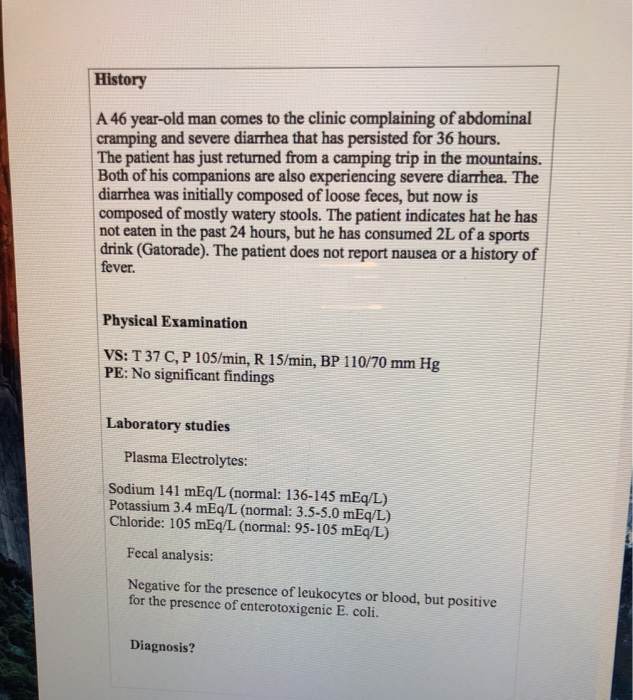
Lily (not her real name) knows what severe hyperemesis is.
My first pregnancy was "really bad, but I endured it," she says.
For the first few months she lay in bed, could only take a few sips of water and vomited up to 30 times a day. She suffered from dehydration and hunger, losing a total of 19 weight during this period.kg.
"I was very weak and could not stand on my feet, I was dizzy. I could not stand any smell of food - what's there, I was sick even from the smell of my husband."
"I remember once I tried to swallow some beans - but they came back in a matter of seconds."
Sometimes a therapist came to Lily and prescribed medicines for nausea, but they did not help.
Finally, after 22 weeks of pregnancy, the disease gradually subsided, and vomiting occurred only once a day.
In 2011, Lily's daughter was born.
"I begged the doctors for steroids"
But a few months later she got pregnant again, and this time she couldn't even drink water - she was so sick.
She was very ill, and since there was a child at home, she simply could not take care of herself.
"I begged the doctors for steroids (they are sometimes prescribed for women who are not helped by other anti-nausea drugs), but we had just moved, I did not have an up-to-date urinalysis, and I was not admitted to the hospital for rehydration therapy."
Author photo, Getty
PIDSIS to the photo,Duchess of Cambridge one of those women who suffer from hyperemesis
Pass the podkast
Podkast
TIZHIA, YAKOYA RUSSIA
Issues
End Podcast
According to the report, women are sometimes told that steroids can harm the fetus or that they are too expensive.
Fewer than one in ten women were offered steroid treatment; 47% of the women interviewed said that they were either denied such treatment in response to their request, or simply did not remember about it.
According to Caitlin Dean, director of Pregnancy Sickness Support, many women are wrongly convinced that there are no safe drugs for pregnant women. Sometimes this belief is reinforced by their doctors.
"But there are actually quite a few medicines that are safe and effective at the same time. Some of them have been known for over 50 years."
"There is plenty of evidence that they don't cause any problems."
Dr. Dagny Rajasingham, Consultant Obstetrician at St Thomas' Hospital in London and Fellow of the Royal College of Obstetricians and Gynecologists, states that hyperemesis gestationis is a well-known condition that should be taken seriously.
"First, women should be given pills for nausea, then hospitalized for intravenous rehydration and nutrition if necessary, and in very severe cases, steroids."
Awareness of hyperemesis will help doctors and midwives be more empathetic towards patients with acute nausea, she adds.
"We must give every pregnant woman a guarantee that she will have someone to discuss these problems with."
No choice
Lily stopped trying to get better medical care during her second pregnancy, as all of her energy was spent on daily survival.
In the end, it seemed to her that there was no choice.
"With all our maternal instincts, it would take desperation to end a child's life."
Image copyright, ivanmikhailov
Image caption,Even plain water can make women with severe hypermesis severely nauseous
"I really felt like I was about to stretch my legs."
The woman says she doesn't want to have any more children and is afraid of getting pregnant.
"I don't trust doctors. They don't take this problem seriously enough, so it ends up with just another abortion."
As for Caitlin Dean - she had three pregnancies with hyperemesis, but thanks to a competent doctor and good medical care before and after conception, the third pregnancy was much easier.
